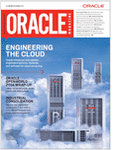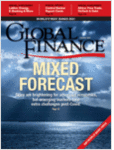 To the Shareholders of Berkshire Hathaway Inc.:
To the Shareholders of Berkshire Hathaway Inc.:
In 2012, Berkshire achieved a total gain for its shareholders of $24.1 billion. We used $1.3 billion of that to repurchase our stock, which left us with an increase in net worth of $22.8 billion for the year. The per-share book value of both our Class A and Class B stock increased by 14.4%. Over the last 48 years (that is, since present management took over), book value has grown from $19 to $114,214, a rate of 19.7% compounded annually.*
A number of good things happened at Berkshire last year, but let’s first get the bad news out of the way.
When the partnership I ran took control of Berkshire in 1965, I could never have dreamed that a year in which we had a gain of $24.1 billion would be subpar, in terms of the comparison we present on the facing page.
But subpar it was. For the ninth time in 48 years, Berkshire’s percentage increase in book value was less than the S&P’s percentage gain (a calculation that includes dividends as well as price appreciation). In eight of those nine years, it should be noted, the S&P had a gain of 15% or more. We do better when the wind is in our face.
To date, we’ve never had a five-year period of underperformance, having managed 43 times to surpass the S&P over such a stretch. (The record is on page 103.) But the S&P has now had gains in each of the last four years, outpacing us over that period. If the market continues to advance in 2013, our streak of fiveyear wins will end.
One thing of which you can be certain: Whatever Berkshire’s results, my partner Charlie Munger, the company’s Vice Chairman, and I will not change yardsticks. It’s our job to increase intrinsic business value – for which we use book value as a significantly understated proxy – at a faster rate than the market gains of the S&P. If we do so, Berkshire’s share price, though unpredictable from year to year, will itself outpace the S&P over time. If we fail, however, our management will bring no value to our investors, who themselves can earn S&P returns by buying a low-cost index fund.
Charlie and I believe the gain in Berkshire’s intrinsic value will over time likely surpass the S&P returns by a small margin. We’re confident of that because we have some outstanding businesses, a cadre of terrific operating managers and a shareholder oriented culture. Our relative performance, however, is almost certain to be better when the market is down or flat. In years when the market is particularly strong, expect us to fall short.
Now to some good news from 2012:
Last year I told you that BNSF, Iscar, Lubrizol, Marmon Group and MidAmerican Energy – our five most profitable non-insurance companies – were likely to earn more than $10 billion pre-tax in 2012. They delivered. Despite tepid U.S. growth and weakening economies throughout much of the world, our “powerhouse five” had aggregate earnings of $10.1 billion, about $600 million more than in 2011.
Of this group, only MidAmerican, then earning $393 million pre-tax, was owned by Berkshire eight years ago. Subsequently, we purchased another three of the five on an all-cash basis. In acquiring the fifth, BNSF, we paid about 70% of the cost in cash, and for the remainder, issued shares that increased the amount outstanding by 6.1%. Consequently, the $9.7 billion gain in annual earnings delivered Berkshire by the five companies has been accompanied by only minor dilution. That satisfies our goal of not simply growing, but rather increasing per-share results.
Unless the U.S. economy tanks – which we don’t expect – our powerhouse five should again deliver higher earnings in 2013. The five outstanding CEOs who run them will see to that.




